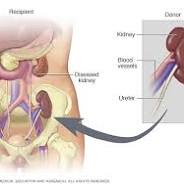The Miracle of Kidney Transplants
Kidney transplants have revolutionised the treatment of end-stage renal disease, offering hope and a new lease on life to thousands of patients worldwide. A kidney transplant is a surgical procedure in which a healthy kidney from a living or deceased donor is implanted into a recipient with kidney failure.
For many individuals with chronic kidney disease, a transplant represents the best chance for long-term survival and improved quality of life. Unlike dialysis, which is a temporary solution that requires regular treatments, a successful kidney transplant can provide freedom from the constraints of ongoing medical intervention.
The process of finding a suitable donor and undergoing the transplant surgery can be complex and challenging, but advancements in medical technology and surgical techniques have made kidney transplants safer and more successful than ever before. Patients who receive a new kidney often experience significant improvements in their health and well-being, allowing them to return to normal activities and enjoy a fuller life.
However, the success of a kidney transplant depends not only on the surgical procedure itself but also on post-transplant care and lifelong management. Recipients must take immunosuppressant medications to prevent rejection of the donor organ and undergo regular monitoring to ensure that the new kidney functions properly.
Despite these challenges, the impact of kidney transplants on patients’ lives cannot be overstated. Many transplant recipients report feeling grateful for the gift of life they have received and are inspired to make the most of their second chance. Family members who donate kidneys often experience profound satisfaction in knowing that they have helped save a loved one’s life.
In conclusion, kidney transplants are truly miraculous procedures that offer hope, healing, and renewed vitality to those suffering from end-stage renal disease. As medical science continues to advance, we can only hope that more patients will benefit from this life-saving treatment in the future.
Essential Questions About Kidney Transplants: Longevity, Survival Rates, Challenges, Warning Signs, and Life Post-Transplant
- Why do kidney transplants only last 10 years?
- What is the survival rate for kidney transplant?
- What is the biggest problem with kidney transplants?
- What are the first signs of a kidney transplant failing?
- Can you live a normal life after a kidney transplant?
Why do kidney transplants only last 10 years?
The lifespan of a kidney transplant can vary widely depending on various factors, but it is not necessarily limited to only 10 years. While some transplants may indeed experience a decline in function after a decade, advancements in medical care and immunosuppressive therapies have significantly improved long-term outcomes for many recipients. Factors such as the recipient’s overall health, compatibility with the donor organ, adherence to medication regimens, and the presence of any complications can all influence the longevity of a kidney transplant. Close monitoring and proactive management by healthcare professionals are crucial in maximising the lifespan of the transplanted kidney and ensuring the best possible quality of life for the recipient.
What is the survival rate for kidney transplant?
The survival rate for kidney transplants is a common concern for individuals considering this life-changing procedure. Generally, the survival rates for kidney transplants are quite high, with many recipients enjoying long-term success and improved quality of life. According to medical research, the one-year survival rate for a kidney transplant is typically around 95%, while the five-year survival rate can range from 85% to 90%. Factors such as the recipient’s overall health, compatibility with the donor organ, and adherence to post-transplant care play crucial roles in determining long-term outcomes. Regular monitoring and follow-up care are essential to ensure the continued success of a kidney transplant and to maximise the chances of a positive prognosis.
What is the biggest problem with kidney transplants?
One of the biggest challenges associated with kidney transplants is the risk of organ rejection. Despite advancements in medical technology and the use of immunosuppressant medications to prevent rejection, there is always a possibility that the recipient’s immune system may identify the transplanted kidney as a foreign body and attack it. This can lead to complications and, in some cases, the need for additional treatment or even a second transplant. Managing this risk and ensuring long-term success of the transplant requires close monitoring, adherence to medication regimens, and ongoing communication between patients and healthcare providers.
What are the first signs of a kidney transplant failing?
Recognising the early signs of a failing kidney transplant is crucial for prompt intervention and management. Common indicators that a kidney transplant may be failing include a decrease in urine output, swelling in the legs or other areas of the body, increased fatigue, elevated blood pressure, and changes in laboratory test results such as rising creatinine levels. It is essential for transplant recipients to stay vigilant and report any concerning symptoms to their healthcare team promptly to ensure timely evaluation and appropriate treatment to maximise the longevity and function of the transplanted kidney.
Can you live a normal life after a kidney transplant?
For many individuals who undergo a kidney transplant, the prospect of living a normal life post-surgery is a common concern. The good news is that with proper care and adherence to medical recommendations, many transplant recipients are able to lead fulfilling and active lives following the procedure. While adjustments may be necessary, such as taking immunosuppressant medications and attending regular check-ups, the majority of patients experience significant improvements in their health and well-being. With ongoing support from healthcare professionals, family, and friends, it is indeed possible to resume daily activities, pursue personal goals, and enjoy a quality of life similar to that before kidney failure.

